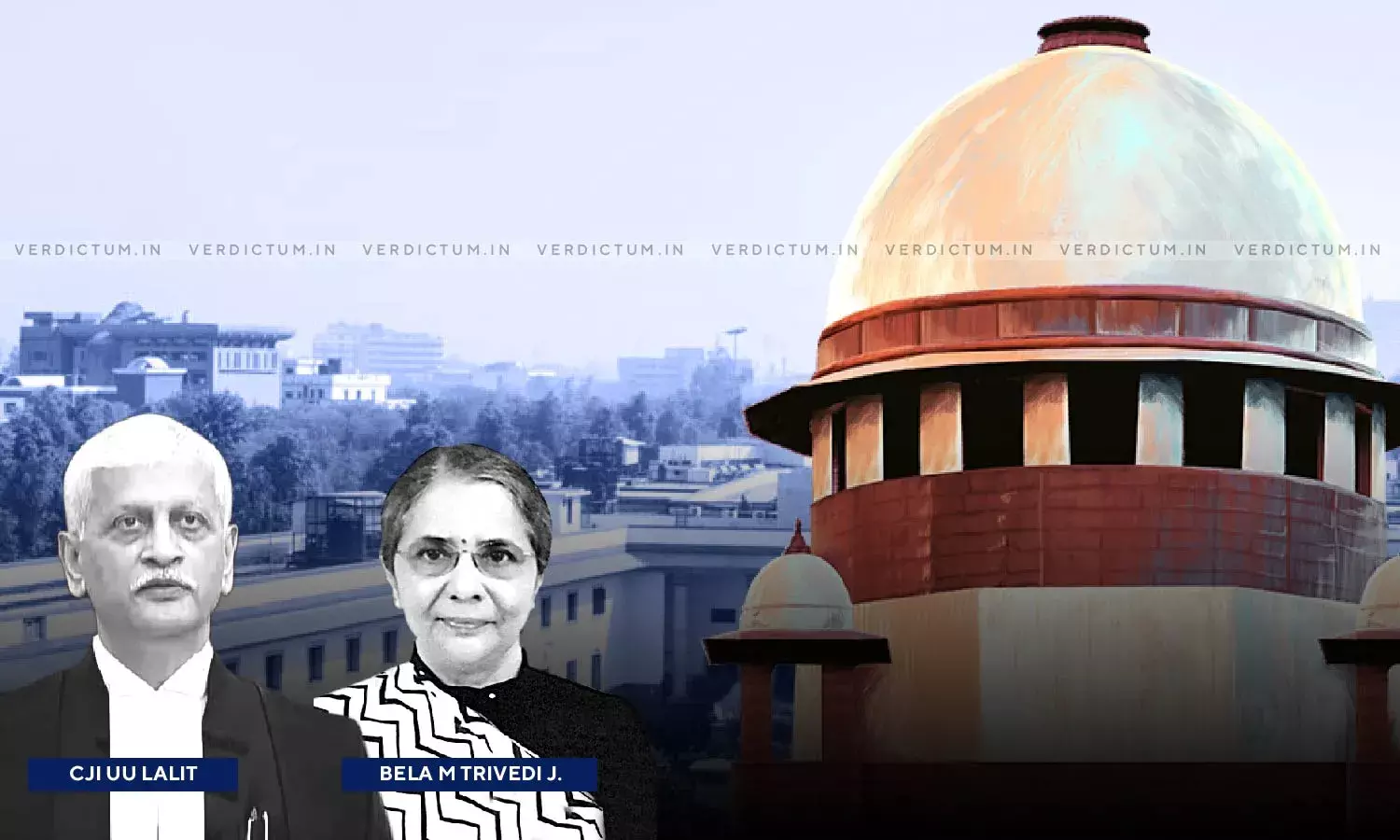Statement By Rape Victim U/s. 164 CrPC Should Not Be Disclosed Even To Accused Till Chargesheet Is Filed: SC
The Supreme Court while dealing with a contempt petition which highlighted the violation of mandatory directions issued in the matter of State of Karnataka by Nonavinakere Police v. Shivanna alias Tarkari Shivanna (2014) 8 SCC 913 and A v. State of Uttar Pradesh (2020) 10 SCC 505 reiterated that a statement made by a rape victim under Section 164 Cr.PC should not be disclosed to any person including the accused till the final report or chargesheet is filed.
The Bench consisting of Chief Justice of India Uday Umesh Lalit and Justice Bela M. Trivedi suggested that every High Court shall make appropriate modifications or amendments to the Criminal Practice or Trial Rules incorporating consistent provisions.
The Court ordered –
"We see force in the submissions made by Ms. Agarwal, learned counsel. We suggest to every High Court that the appropriate modifications/amendments be made to the Criminal Practice/Trial Rules incorporating provisions consistent with the directions issued by this Court in the decisions in Shivanna alias Tarkari Shivanna and A vs. State of Uttar Pradesh and Another. With these observations, the contempt petition is disposed of. Pending interlocutory application(s), if any, also stands disposed of."
Advocate Tanya Agarwal appeared on behalf of the petitioner.
Senior Advocate R. Basant appeared for the respondent.
The contempt petition was related to the conduct on part of the alleged contemnors who wilfully violated the mandatory directions issued by the Supreme Court. It was alleged by the petitioner that in violation of directions issued by the Supreme Court in its decisions, a copy of the statement of the daughter of the petitioner recorded under Section 164 of the Code of Criminal Procedure, was applied for, and furnished to the accused in the matter.
The Apex Court noted that after taking note of the submission the notice was issued by the Supreme Court and it directed the concerned Court which supplied the copy to answer certain queries. The documents placed on record indicated that the accused applied for such copy and was furnished the copy under a stamp issued by the Copying Department, though the response filed by the concerned Court in answer to the queries raised by the Supreme Court, stated that no such copy was given by the Court to anyone.
The following directions were issued in the Shivanna case:
• Upon receipt of information relating to the commission of offence of rape, the investigating officer shall make immediate steps to take the victim to any Metropolitan/preferably Judicial Magistrate for the purpose of recording her statement under Section 164 CrPC. A copy of the statement under Section 164 CrPC should be handed over to the investigating officer immediately with a specific direction that the contents of such statement under Section 164 CrPC should not be disclosed to any person till charge-sheet/report under Section 173 CrPC is filed.
• The investigating officer shall as far as possible take the victim to the nearest Lady Metropolitan/preferably Lady Judicial Magistrate.
• The investigating officer shall record specifically the date and the time at which he learnt about the commission of the offence of rape and the date and time at which he took the victim to the Metropolitan/preferably Lady Judicial Magistrate as aforesaid.
• If there is any delay exceeding 24 hours in taking the victim to the Magistrate, the investigating officer should record the reasons for the same in the case diary and hand over a copy of the same to the Magistrate.
• Medical examination of the victim : Section 164-A CrPC inserted by Act 25 of 2005 in CrPC imposes an obligation on the part of investigating officer to get the victim of the rape immediately medically examined. A copy of the report of such medical examination should be immediately handed over to the Magistrate who records the statement of the victim under Section 164 CrPC.
Similarly in the case of A v. State of U.P., the Court observed that "no person is entitled to a copy of statement recorded under Section 164 CrPC till the appropriate orders are passed by the court after the charge-sheet is filed." It was also held in this case that "The right to receive a copy of such statement will arise only after cognizance is taken and at the stage contemplated by Sections 207 and 208 CrPC and not before."
The Supreme Court in this context therefore observed –
"In theory what is projected in the contempt petition is quite correct that is to say despite authoritative pronouncements and directions issued by this Court the copy was applied for and furnished to the accused. Further, the copy of statement under section 164 of Cr.PC was extensively referred to in the proceedings before the Court. It is quite unfortunate that the concerned Court also did not notice the violation of the directions issued by this Court."
The Court further held –
"Be that as it may, we are not quite convinced that any action in our contempt jurisdiction is required to be initiated in the present facts and circumstances of the case. Though we do not approve of the practice we refrain from exercising our jurisdiction in contempt."
Accordingly, the Apex Court disposed of the contempt petition and pending interlocutory application.
Cause Title – Eega Soumya v. M. Mahender Reddy & Ors.
Click here to read/download the Order




